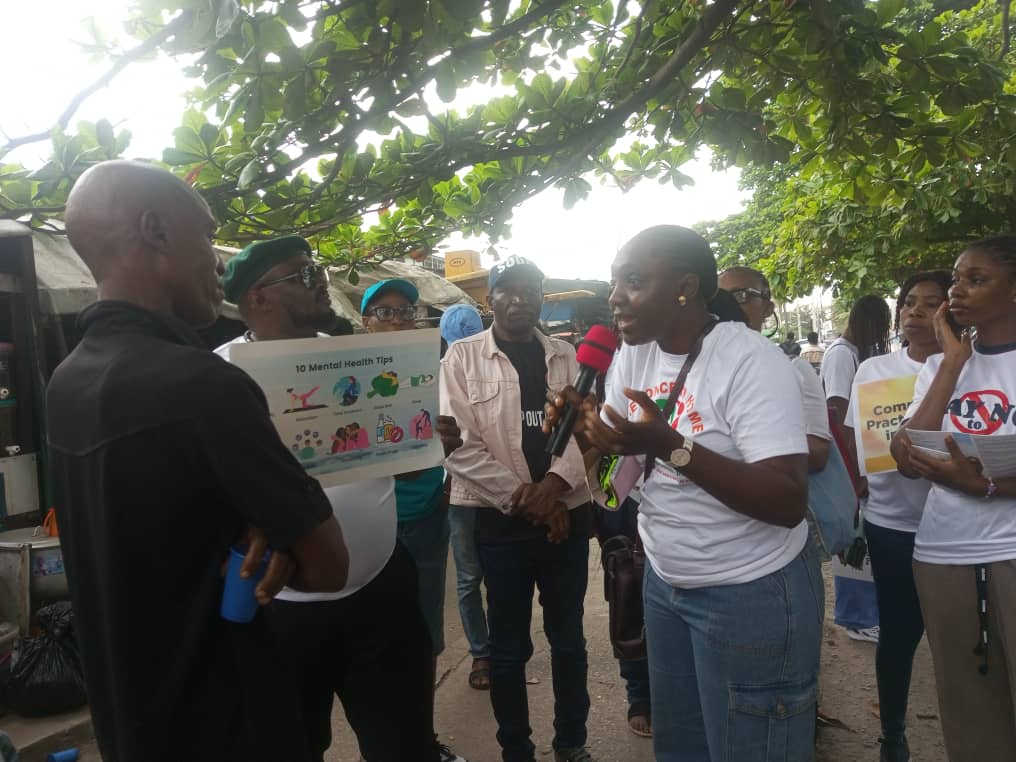By Bunmi Yekini

The Concern Home (TCH), Social and Charitable Initiatives, a Non-Governmental Organisation (NGO), has intensified efforts to raise mental health awareness in the Amuwo-Odofin area of Lagos through a community sensitisation walk and outreach.
The campaign, themed “Workplace Mental Health” with the sub-theme “Mental Health Beyond the Workplace,” began with a walk from the Amuwo-Odofin Local Government Secretariat to the popular Amuwo-Odofin Market, drawing participation from social health workers and representatives of various NGOs.
Speaking during the exercise, Mrs. Lillian Anyebe, founder of The Concern Home, said the initiative aimed to deepen public consciousness on mental wellbeing and encourage collective action to promote and protect mental health for all.
“The essence of this walk is to raise society’s consciousness and drive actions that promote and protect everyone’s mental health, not just in workplaces,” she said.
“Mental health impacts virtually every aspect of our lives, from our physical and emotional health to our relationships with colleagues, neighbours, friends, and family.”
Anyebe added that everyday practices such as rest, setting healthy boundaries, and recognizing personal limits play crucial roles in preventing stress and burnout.
“We are here to let people know that mental health disease is a disease of the mind. Taking enough rest, knowing your limits, and creating healthy boundaries are small but vital steps toward safeguarding our wellbeing,” she noted.
Also speaking, Barr. Ijeoma Olatunbosun, Coordinator of the Child Protection Network (CPN) in Amuwo-Odofin Local Government Area, emphasised that workplace-related stress often contributes to mental health challenges.
“Mental health issues are not always about madness. Stress from home, the office, or community gatherings can affect one’s psychological balance,” she explained.
“When a person is not mentally sound in the workplace, productivity drops significantly. Some people even slump at work due to mental stress. We must care for our mental health just as we do our physical health.”
A resident, Mrs. Serifat Rufai, praised the initiative, urging Nigerians to avoid unnecessary pressure that could harm their mental wellbeing.
“People should live within their means. Some try to live above their financial capacity and end up putting too much pressure on themselves, which leads to mental stress,” she advised.
Another participant, Mr. Frank Ogochukwu, linked the rise in mental health disorders to drug and substance abuse, particularly among young people.
“Many young people resort to drugs when the economy becomes tough, trying to escape depression. NGOs should not just create awareness but also design programmes that support mental health recovery,” he said.
The event concluded with a call for sustained community-driven efforts to tackle mental health stigma and promote healthier lifestyles across all sectors of society.
